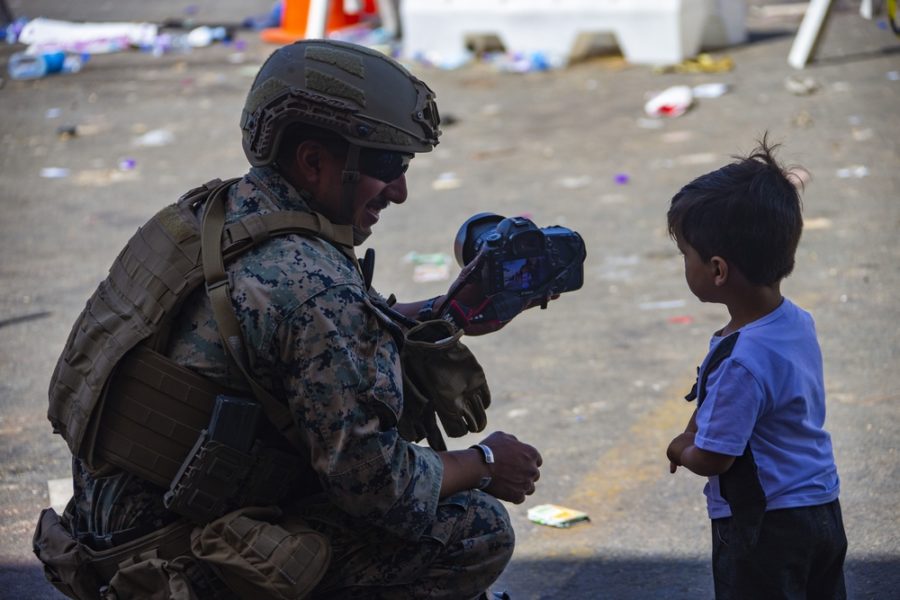The Defense Department said Nov. 1 that to protect the identity of Afghans who helped U.S. and coalition forces, it has archived more than 124,000 photos and 17,000 videos from the Afghanistan War previously available to the public on its official media distribution site.
“We were concerned that [the Taliban] were going to seek out people who helped us over time, or relatives and families,” Pentagon Press Secretary John F. Kirby told journalists.
“I think those concerns were valid, and we make no apology whatsoever for making this decision,” he added.
For 17 days in August after the Taliban took over Afghanistan, the U.S. military helped evacuate 124,000 American citizens, Afghans, and third-country nationals in round-the-clock C-17 flights that departed from Hamid Karzai International Airport. Since the U.S. departed Aug. 31, the State Department believes about a hundred Americans remain and several thousand Afghans desire to relocate to safety in the United States.
The Defense Department’s Defense Visual Information Distribution Service, or DVIDS, makes available DOD-related photos, videos, and stories from across the globe on a daily basis. The images of Afghans going back more than a decade will be archived until an undisclosed time.
Kirby said he personally made the decision and that it was coordinated with the National Security Council and the State Department, which is still helping to evacuate endangered Afghans and their families.
“My guidance was I want any imagery that could be used to identify individuals and or family members over the last 20 years of war—I want it to be unpublished for a temporary period of time,” he said. “It was done out of an abundance of caution.”
Kirby said there was no specific threat or indication that the Taliban was using DVIDS to identify and target Afghans.
He added that DOD had been quietly archiving the media content throughout the noncombatant evacuation effort in August and into September.
“I still believe that was the right thing to do,” he said. “Nothing’s been deleted from the record. It’s simply being archived until we believe it’s the appropriate time to put them back up.”
